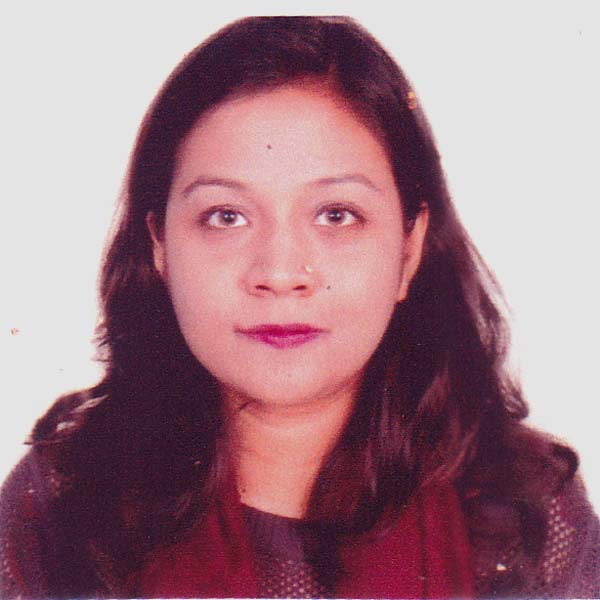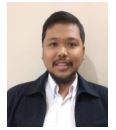Day 1 :
Keynote Forum
Maliha Binte Mohiuddin
USAID GeoCenter, Bangladesh
Keynote: Elevating the skills of youth through the humanitarian remote mapping with the thrive of YouthMappers network
Time : 10.00 am

Biography:
Maliha Binte Mohiuddin is working as a Regional Ambassador for the YouthMappers Network, USAID GeoCenter
Abstract:
Elevating the skills of youth through the humanitarian remote mapping with the thrive of YouthMappers network
Maliha Binte Mohiuddin
USAID GeoCenter, Bangladesh
Abstract
YouthMappers network is a comprehensive association of university-based student-led groups, organized to create open spatial data for community development or humanitarian needs. YouthMappers was launched in 2015 with support by the United States Agency for International Development (USAID) GeoCenter and by researchers and students at Texas Tech University, George Washington University, and West Virginia University. YouthMappers aims to support a generation of mappers using web-based open geospatial technologies (i.e., OpenStreetMap)to create map data by identifying locations of buildings, roads and other features on satellite imagery and add detailed attributes such as types of buildings (hospitals, schools) street names or directional information from local student knowledge. The range of volunteer mapping projects undertaken by YouthMappers contribute to fundamental geospatial data that can inform this spectrum of needed information. This research is an opinion survey research. That is why we will mostly collect data from primary sources of information. Selection of data collection method will depend on the objectives of the study and types of information needed. This section presents an overview of the methods that will be used in this research. In the research mainly three research methods are used: Survey questionnaire, interview and observation. Likewise, through YouthMappers work on malaria prevention, we have shown that the scaled-up network of students focused on a development purpose related to the SDGs performs at least as good as any OSM volunteer at large. This may be encouraging at the same time it prods to research how, not only further improve data quality as traditionally measured, but also how to rethink what is meant by data quality. YouthMappers are doing this through the design and implementation of a method of collaborative action in the applied domain that operates at a global scale: YouthMappers' participatory spatial data creation. This is an important stance if the public in general, and youth, can become important actors and partners to their governments in meeting the SDGs, especially in developing regions of the world.
Biography: Maliha Binte Mohiuddin is working as a Regional Ambassador for the YouthMappers Network, USAID GeoCenter.
mohiuddin.maliha@gmail.com
Keynote Forum
Wahyu Setyawan Minarto
Safety Practitioner, Indonesia
Keynote: The challenges of disaster risk reduction community education: An overview of community groups role in Indonesia
Time : 10.45

Biography:
Wahyu Minarto has his Expertise and passion in Occupational Health and Safety (OHS) and Child Safety. As an OHS practitioner he is restless of the fact that safety is not yet adapted in the individual and family level. He is also interested to connecting the OHS community with the DRR expert community because he believes that both communities share the common goal and can work together better to support DRR education.
Abstract:
Located on three active tectonic plates, Indonesia has to cope with the emerging risk of many natural disasters such as earthquakes, floods, volcanic eruptions and many types of tsunamis. Including the deadliest recorded tsunami (2004) that strikes Banda Aceh and surrounding coast of Indian Ocean with the dead toll up to 228.000 lives in 14 countries. In volcanic eruption threat alone, Indonesia has the most active volcanoes in the world with estimated almost 130 volcanoes. So it is an obligation for Indonesian to be more aware of these threats. Although the Disaster Risk Reduction (DRR) education has been inserted in curricula and the robust role of the authority bodies such as BNPB and BMKG, nevertheless DRR education need to be strengthen in the family or community level. This is where the community groups come in to complete. As like many other issues that the society is facing, DRR issues also require wider collaboration across different sectors so as to initiate discussions and awareness for disaster preparedness to lower the impact and victim from disaster. This acknowledges several non-profit community groups are emerging in Indonesia to deliver non-formal education/community education focusing on the DRR. As self-initiated, self-funded, non-governmental institutions, these groups struggle with issues which could threaten their existence. Research carried out by surveying 12 community groups in Indonesia. These are self-initiated group that are focusing on DRR, or has a program related to DRR or at least have done one activity related to DRR. The survey indicates their role as source of information, capacity builder, consultant, collaborator and executor. With several benefit such as utilizing popular and family friendly content in the communication, high flexibility and easiness to be contacted. However, Community Groups also faces some challenges such as insecure revenue income, lack of professional management and competency issue.
Biography
Wahyu Minarto has his Expertise and passion in Occupational Health and Safety (OHS) and Child Safety. As an OHS practitioner he is restless of the fact that safety is not yet adapted in the individual and family level. He is also interested to connecting the OHS community with the DRR expert community because he believes that both communities share the common goal and can work together better to support DRR education.
